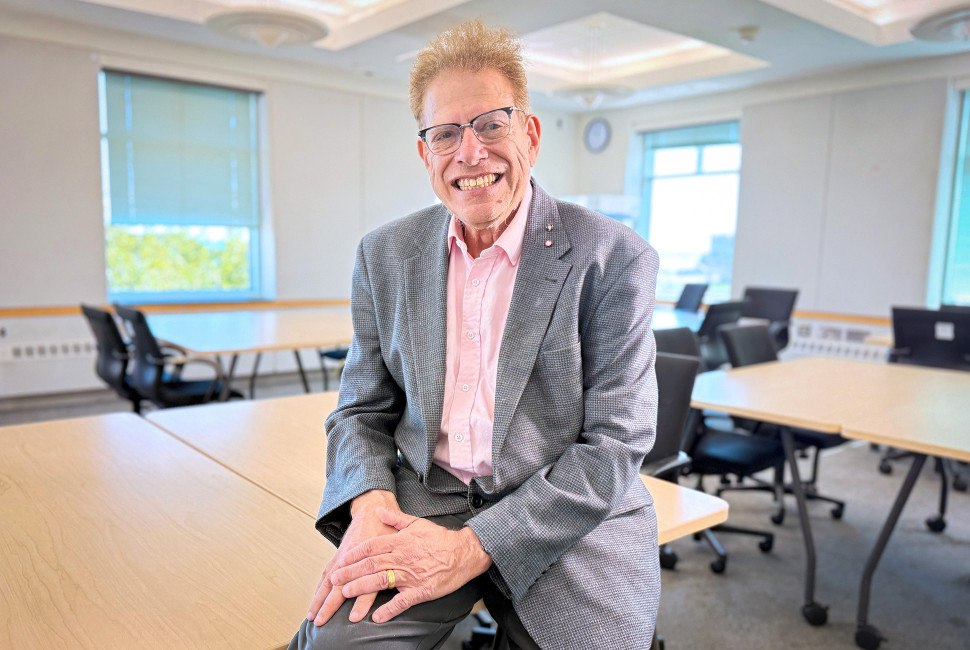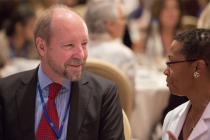Northwestern School of Education and Social Policy (SESP) professor Uri Wilensky, a preeminent scholar in computer modeling and simulations, has been awarded the 2025 Yidan Prize for Education Research. The Yidan Prize is the world’s largest prize in education.
The prize comes with $3.8 million in support, half of which is a project fund to expand and scale the winner’s education initiatives. The prize was announced today, Sept. 29, by the Yidan Prize Foundation, which recognized Wilensky for his groundbreaking work in agent-based modeling (ABM), which promotes complex systems literacy and bridges disciplinary knowledge.
Wilensky is the Lorraine H. Morton Professor of Learning Sciences and Computer Science at SESP and the McCormick School of Engineering and Applied Science. He is an early pioneer of advocating for the power of computer modeling and simulations.
In 1999, he developed the free, open-source tool NetLogo to facilitate an understanding of complex systems problems such as climate change, pandemics and economic instability. The platform allows users to explore and build models that illustrate how individual agents can interact with each other to create large-scale patterns. The same tool can be used by children and researchers alike, providing a universal language to approach complex issues in different educational and academic settings.
“This is such an exciting recognition of the work that I’ve been doing for over 30 years,” Wilensky said. “With the prize, I now want to get NetLogo more deeply embedded in institutions, including classrooms, newsrooms and government. I want to see most individuals and organizations become literate in agent-based modeling.”
Andreas Schleicher, head of the Yidan Prize Education Research judging panel, emphasized the timeliness of spotlighting Wilensky’s work.
“Professor Uri Wilensky explores how computational representations can recast knowledge across scientific and social domains,” he said. “By equipping students with tools to understand nonlinear, complex systems, he fosters their confidence and agency to navigate today’s interconnected world.”
Wilensky said his students are what motivates him at this stage of his career. “I've been really fortunate to have incredible doctoral students over the years. So many of them have become close colleagues,” he said. “Most of them are professors at universities around the world. I take great pride in the accomplishments of my students, and that’s a major way I measure my success in my field: how well my students do and how much they can expand upon the ideas they learned here and move them into their own territories.”
Wilensky is the founding director of the Northwestern Center for Connected Learning and Computer-Based Modeling, president of the Northwestern NetLogo center, co-founder of the Northwestern Institute on Complex Systems and founding co-director of the joint PhD program in Computer Science and Learning Sciences. He has developed a library of over 400 computational models for educational use, published more than 400 peer-reviewed papers, and his book, “An Introduction to Agent-Based Modeling,” has been reprinted five times.
“Uri Wilensky’s contributions to computer modeling and simulations have been immeasureable, he is truly a pioneer,” said Northwestern President Henry Bienen. “His impact is felt on our campus and well beyond our University. His dedication to democratizing his groundbreaking research and work for the benefit of all makes him deserving of not just this incredible award, but of our gratitude.”
Wilensky’s Northwestern colleagues and collaborators are celebrating the award as well-deserved recognition for his innovation in model-based learning.
“Uri Wilensky’s contributions to how we think about learning are extraordinary, whether it is making NetLogo available to schools across the world or helping us understand the complex intersections between learning and technology,” said Bryan McKinley Jones Brayboy, dean of School of Education and Social Policy. “Uri's research lives at the intersection of learning, computation, complexity theory and computer science. While that sounds rather inaccessible for many, his life’s work has been about making it available to everyone. He’s a gift.”
Said Christopher Schuh, dean of McCormick School of Engineering and Applied Science: “Engineering faculty are expected to change their field by innovating in research and technology, but it is a very special engineer who also innovates the very fundamentals of education. Uri’s research has pioneered new ways to teach complexity and modeling, bringing together computer science and learning sciences to develop a tool with widespread global adoption. We are proud that Northwestern serves as the home of such pioneering interdisciplinary excellence.”
Wilensky was elected a fellow of the National Academy of Education and the American Academy of Arts and Sciences. He has received numerous awards for his work, including the National Science Foundation Early Career Award, the Spencer Foundation’s Post-Doctoral Award and the 2016 International Society for Design and Development in Education prize for excellence in design for his work on NetLogo.



